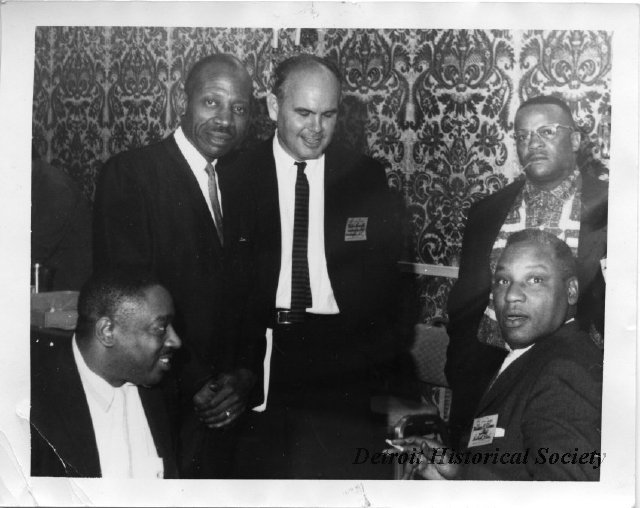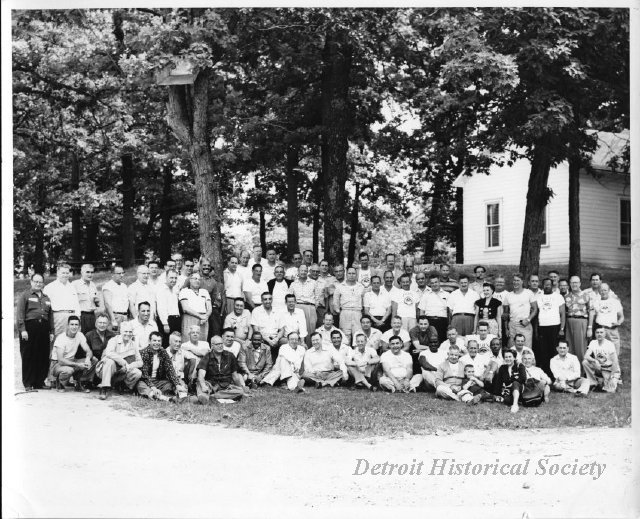Encyclopedia Of Detroit
Reuther, Walter
Walter P. Reuther, the man who eventually became the firebrand leader of the United Automobile Workers (UAW), was born in Wheeling, West Virginia on September 1, 1907. Reuther was a first-generation German-American and learned socialist ideals and union politics from his father.
Arriving in Detroit in 1927, Reuther became a skilled tool and die maker. He enrolled at the College of the City of Detroit (now Wayne State University) and became active in various socialist organizations. During this period, Reuther toured Germany and Russia with his brother Victor, experiencing life in European factories firsthand. Upon returning, he married May Wolf, a teacher and activist; together they had two daughters.
Back in Detroit, Reuther threw himself into union organizing and as president of Westside Local 147, was elected to the executive board of the UAW at their annual convention in 1936. Later, when Ford Motor Company continued to resist the UAW’s effort to unionize workers (General Motors and Chrysler acknowledged the UAW in 1937), Reuther was part of the famous “Battle of the Overpass” at the Ford Rouge Plant where the UAW and Ford security guards clashed.
During World War II Reuther submitted a plan for making Detroit and Michigan the “Arsenal of Democracy,” but it was resisted by the auto companies who implemented their own ideas. He gained the ear of President Franklin Roosevelt, advising him on war time labor issues. Reuther’s subsequent success in negotiating a contract between GM and the UAW, that emphasized the social responsibility of the auto companies toward its workers, led to his election as president of the UAW in 1946, a title he held until his death.
Reuther was instrumental in elevating the automobile worker to middle class status. Better wages, health care, safer and improved working conditions, job security, pensions, and more were seen as workers’ rights, not concessions by the profit-oriented auto companies. When negotiations failed, Reuther was not afraid to lead his workers in strikes.
Reuther was a natural speaker and his talent for organizing laborers and confronting corporations vaulted him to the highest leadership positions, national and international. After spurring change in the automobile business, he turned to other industries, including agriculture and health care. He allied himself with President Lyndon Johnson’s efforts in civil rights education and the war on poverty, and was a friend of Dr. Martin Luther King, Jr. – the UAW sponsored King’s 1963 visit to Detroit. He committed the support of the UAW to the history-making farm workers’ strike led by Caesar Chavez.
Reuther and his wife were killed in a plane crash at Pellston, Michigan on May 9, 1970, on route to the Black Lake UAW education center, now named in their honor. The largest labor archive in North America bears his name. The Walter P. Reuther Library of Labor and Urban Affairs, at Wayne State University, was constructed in 1975. The Metro Detroit east-west highway Interstate 696 is also named in his honor.



